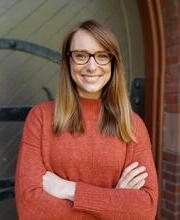
Ph.D. Candidate, Department of History, Harvard University
Challenging the Ableist State: Blind Organizing Through Technology and Welfare in the Era of the American Eugenics Movement, 1865-1940
“Challenging the Ableist State” combines research concerns and interpretive tools from the history of disability with those from the histories of technology and medical science to argue that the expansion of state apparatuses between the Civil War and the New Deal both elaborated new forms of ableism in the U.S. and facilitated opportunities for challenges to discriminatory logics. Part One considers a challenge to ableism (and, through an application of intersectional theory, its limits) in the history of communication technologies developed in residential blindness schools. Part Two and Three analyze chronologically overlapping and competing policy campaigns. The failure of the second group of actors—eugenicist scientists and physicians—to pass anti-blind marriage legislation is explained in part by the success of the first cohort—blind-led interest groups—in making the case that poor blind people should qualify for aid and protection in the nascent welfare state.